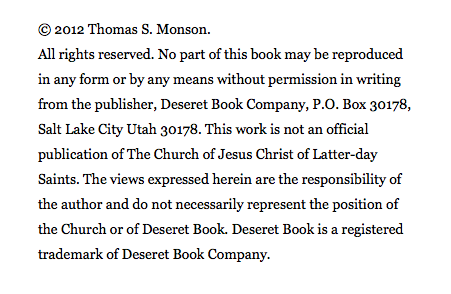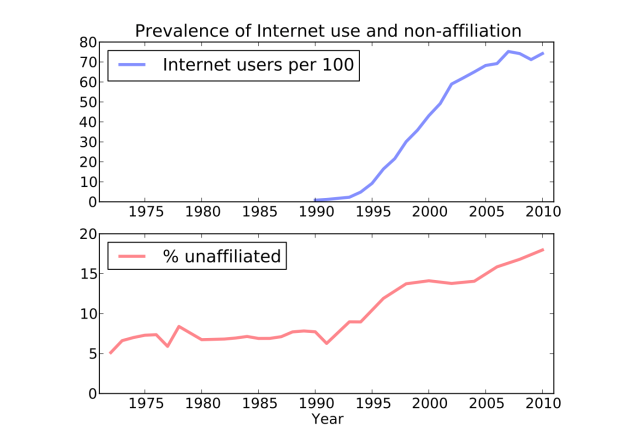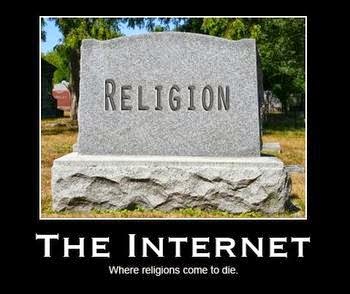“I Have Made Thee This Day… an Iron Pillar”
Jeremiah 1–2; 15; 20; 26; 36–38
LDS manual: here
Reading
Thank goodness we’re done with Isaiah. But no sooner do we get done with him then — oh, no — it’s Jeremiah. Jeremiah is just like Isaiah, except more depressing. This could be because, whereas Isaiah got to walk around naked a lot — some people find naturist culture very relaxing — Jeremiah spent a lot more time in dungeons. And little wonder: he scolds and harangues people, and then wonders why they can’t stand him. Jeremiah spent so much time haranguing people that he inspired a word for a long and tedious harangue against people: it’s a jeremiad.
And predictably, Jeremiah’s screed is full of blood and fire. There’s one thing we can say about the god of the Bible: he’s consistent. He tells people about the atrocious acts of murder he’s going to wage against them. For instance:
Jeremiah says that God is tired of holding back his fury, and wants to kill everyone.
6:11 Therefore I am full of the fury of the LORD; I am weary with holding in: I will pour it out upon the children abroad, and upon the assembly of young men together: for even the husband with the wife shall be taken, the aged with him that is full of days.
6:12 And their houses shall be turned unto others, with their fields and wives together: for I will stretch out my hand upon the inhabitants of the land, saith the LORD.
Their dead bodies will be eaten by birds and beasts.
7:33 And the carcases of this people shall be meat for the fowls of the heaven, and for the beasts of the earth; and none shall fray them away.
God will punish them by killing their sons and daughters.
11:22 Therefore thus saith the LORD of hosts, Behold, I will punish them: the young men shall die by the sword; their sons and their daughters shall die by famine:
And God will lift their skirts, non-consensually.
13:26 Therefore will I discover thy skirts upon thy face, that thy shame may appear.
But why is God going to kill everyone? Because their fathers didn’t believe in him enough.
16:10 And it shall come to pass, when thou shalt shew this people all these words, and they shall say unto thee, Wherefore hath the LORD pronounced all this great evil against us? or what is our iniquity? or what is our sin that we have committed against the LORD our God?
16:11 Then shalt thou say unto them, Because your fathers have forsaken me, saith the LORD, and have walked after other gods, and have served them, and have worshipped them, and have forsaken me, and have not kept my law;
Walked after other gods? Could you put this into a sexual metaphor for me?
3:1 They say, If a man put away his wife, and she go from him, and become another man’s, shall he return unto her again? shall not that land be greatly polluted? but thou hast played the harlot with many lovers; yet return again to me, saith the LORD.
3:2 Lift up thine eyes unto the high places, and see where thou hast not been lien with. In the ways hast thou sat for them, as the Arabian in the wilderness; and thou hast polluted the land with thy whoredoms and with thy wickedness.
3:3 Therefore the showers have been withholden, and there hath been no latter rain; and thou hadst a whore’s forehead, thou refusedst to be ashamed.
Keep going, but now incorporate primitive sex toys.
3:9 And it came to pass through the lightness of her whoredom, that she defiled the land, and committed adultery with stones and with stocks (trees).
I actually enjoy this imagery:
5:7 How shall I pardon thee for this? thy children have forsaken me, and sworn by them that are no gods: when I had fed them to the full, they then committed adultery, and assembled themselves by troops in the harlots’ houses.
5:8 They were as fed horses in the morning: every one neighed after his neighbour’s wife.
But remember: God is warning people about all the evil he’s going to do, so that maybe he won’t have to do all the evil to them. So that’s good.
36:3 It may be that the house of Judah will hear all the evil which I purpose to do unto them; that they may return every man from his evil way; that I may forgive their iniquity and their sin.
But “Obey me, or I will have you killed” is not much of a choice, is it? Many times in church, I would hear speakers or teachers say something like the following: “God gives us commandments, and invites us to obey. If we obey, we get blessings, and if we don’t, then there will be consequences to our actions.” Which is all very well, but the picture that emerges from our reading of the Old Testament is that God gives commandments, and then threatens us with death if we don’t obey them (or if our fathers don’t).
At least at this stage in the OT, the threats only extend to death. Jesus will update that to include eternal punishment in hell.
Main points from this lesson
Is it good to be ‘an iron pillar’?
Jeremiah says God told him this:
1:18 For, behold, I have made thee this day a defenced city, and an iron pillar, and brasen walls against the whole land, against the kings of Judah, against the princes thereof, against the priests thereof, and against the people of the land.
In case the class hasn’t seen anything made of iron before, the real lesson manual helpfully suggests:
Display a metal bar and invite a class member to try to break it. Then ask the following questions:
• If this object represented a person’s characteristics, what would it suggest about him or her?
I imagine they’re shooting for ‘strong’, which is very positive. But take a guess: is it positive in the following scripture?
Isaiah 48:4 …thy neck is an iron sinew, and thy brow brass;
Answer: Not here. Here, it’s symbolic of an inflexible nature. For Jehovah, it’s bad to be inflexible by not believing in him, but good to be inflexible in his service — just like with murder, genocide, and a lot of other nasty things.
One of the things I’ve been learning (post-religion) is the importance of being able to change my mind when the facts require. It’s one of science’s great strengths that it can update to accommodate new facts. And it’s good to be able to change one’s mind on an individual level, as everything we think is probably at least a little bit wrong.
Richards Dawkins tells this story:
I have previously told the story of a respected elder statesman of the Zoology Department at Oxford when I was an undergraduate. For years he had passionately believed, and taught, that the Golgi Apparatus (a microscopic feature of the interior of cells) was not real: an artifact, an illusion. Every Monday afternoon it was the custom for the whole department to listen to a research talk by a visiting lecturer. One Monday, the visitor was an American cell biologist who presented completely convincing evidence that the Golgi Apparatus was real. At the end of the lecture, the old man strode to the front of the hall, shook the American by the hand and said–with passion–“My dear fellow, I wish to thank you. I have been wrong these fifteen years.” We clapped our hands red. No fundamentalist would ever say that. In practice, not all scientists would. But all scientists pay lip service to it as an ideal–unlike, say, politicians who would probably condemn it as flip-flopping. The memory of the incident I have described still brings a lump to my throat.
I respect Dawkins most when he admits his lack of knowledge in some area, as in this clip (question starts at 38:04, Dawkins’ comment at 47:50)
Chairman: I just want to hear from Richard Dawkins. The same debate essentially has been going on in the U.K. and in fact right across Europe. Your thoughts on hearing it repeated here?
Richard: I’ve been rather moved to hear the very humane statements that have been made. I don’t feel I should contribute to this debate. I know nothing about the Australian situation, but I was moved especially by what the Rabbi was saying.
And I respect him least when he’s dismissive of others, as in his recent Twitter squabbles.
As for me, I love being wrong. Well, not really — does anyone? But once I was talking to a listener of my podcast (Talk the Talk), and she said, “Have you ever gotten something wrong?” I thought for a second, and had to say, “No, I haven’t.” But then I realised, with some horror: I have gotten it wrong, and I just don’t know it!
Then on a later episode, someone pointed out that I’d made a mistake. And I thought, thank goodness! What a relief! For one thing, I didn’t have to think that wrong thing anymore, so I knew more than before. And for another, someone’s noticing my mistakes, so I’ve probably gotten most of the other things right, otherwise someone would have said something.
This willingness to change my mind is part of why I do this blog, and why I engage with believers. If I’m wrong about this religion thing, someone will tell me, and if they have the facts, I can be convinced. Based on the last million interactions, it’s not looking good, and I’m not holding my breath. It would take an awful lot to convince me that all the immoral things we’ve read are moral. If someone were able to convince me, it might have more to do with my moral failure than with their having a good argument. After all, what could make this god’s actions moral? But I have to, at least in theory, keep the door open, keep talking, and keep engaging. Not be iron.
“Before I formed thee in the belly I knew thee”
Mormons use this scripture to support the notion of a pre-mortal life.
1:5 Before I formed thee in the belly I knew thee; and before thou camest forth out of the womb I sanctified thee, and I ordained thee a prophet unto the nations.
I’ve mentioned before that the pre-mortal life was one of my favourite Mormon doctrines, mostly because of an epiphany I used to have when seeing tons of people at once in a public place. Oh, look, I’d think, all my brothers and sisters from the realms of glory, etc. It was a lovely thought, and after deconversion, one that I hated to lose. I didn’t think I’d ever have access to that again.
Of course, there are some aspects of the pre-mortal life that aren’t so lovely. It means that God made a whole lot of people, knowing in advance that they wouldn’t make it to the Celestial Kingdom, and that they’d therefore face eternal separation from their families / God / Ed McMahon and so forth. Why would his perfect system involve exclusion and isolation for so many? Not too cool, God. Why didn’t he use his all-knowingness to know who would make it back to his presence, and only create those people? Why wouldn’t he make a bar that everyone could clear? And the answer is that the system doesn’t have a way of controlling you if you don’t have something to lose.
A bit of an update: One bright, sunny day at the university where I teach, I was walking to my office, and noticing all the terrific students around the place. So many smart people! All a little different from each other; all carrying different DNA. And I started thinking about evolution, and how the genes of everyone that I was seeing had combined in partly random ways from parents to make gazillions of different people, walking around here on earth. I realised that was we call ‘humankind’ was nothing less than the sum total of all the humans who were alive today, and here we were, and it was all happening now! And we were all related! Wow!
It was the pre-mortal epiphany again. I was very pleased to find that, despite my lack of belief, I hadn’t lost access to it. But this time it was based in something real, and no less inspiring.
Additional lesson ideas
Of leopards and spots
You’ve probably heard people say “A leopard can’t change its spots” as a way of referring to the immutability of personality or motivation. Well, that saying comes from Jeremiah, except with a slight twist:
13:23 Can the Ethiopian change his skin, or the leopard his spots? then may ye also do good, that are accustomed to do evil.
It’s probably good that we don’t say the first part anymore. Totally not cool, Bible.
Don’t have Christmas trees
Jeremiah appears to condemn Christmas trees.
10:1 Hear ye the word which the LORD speaketh unto you, O house of Israel:
10:2 Thus saith the LORD, Learn not the way of the heathen, and be not dismayed at the signs of heaven; for the heathen are dismayed at them.
10:3 For the customs of the people are vain: for one cutteth a tree out of the forest, the work of the hands of the workman, with the axe.
10:4 They deck it with silver and with gold; they fasten it with nails and with hammers, that it move not.
Of course, Jeremiah — having no actual prophetic powers — wasn’t referring specifically to Christmas trees. People don’t nail Christmas trees to the floor, anyway, but that’s easy to overlook when you read this passage and think “Christmas tree”. But it’s fun to float this scripture in a real Gospel Doctrine class, and watch the gymnastics that follow.
What’s with deck, anyhow? When we talk about decorating things, there’s nothing we would say that we deck. The usefulness of this word would appear to have shrunk to halls and trees.
Here’s the story. The word comes from Middle Dutch dekken, “to cover”, so you deck a tree when you cover it. For that matter, the deck of a boat is the part that covers the boat, so that’s related, too. And when you deck someone, you lay them out on the deck. (Those sailors; always fighting.) It’s fun to see how the meaning of words coincide.
Closing hymn
Here’s one of the more desolate passages from Jeremiah.
8:15 We looked for peace, but no good came; and for a time of health, and behold trouble!
8:16 The snorting of his horses was heard from Dan: the whole land trembled at the sound of the neighing of his strong ones; for they are come, and have devoured the land, and all that is in it; the city, and those that dwell therein.
8:20 The harvest is past, the summer is ended, and we are not saved.
8:22 Is there no balm in Gilead; is there no physician there? why then is not the health of the daughter of my people recovered?
That sounded pretty good, but it would sound better if it were set to music by… oh, say… Ralph Vaughan Williams. And look! it is. Here’s his Dona Nobis Pacem.
The whole thing is good, mostly thanks to the poetry of Walt Whitman, but for this lyric, start at 28:11.








Recent Comments